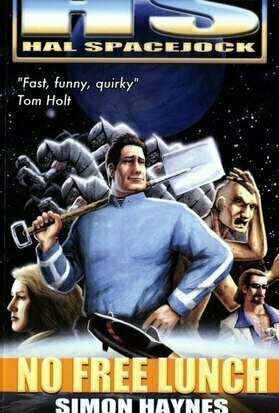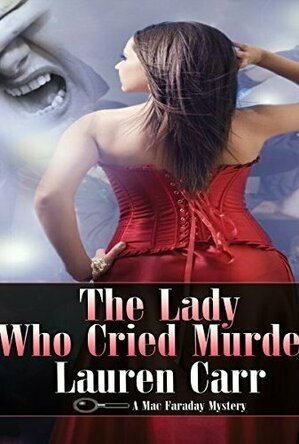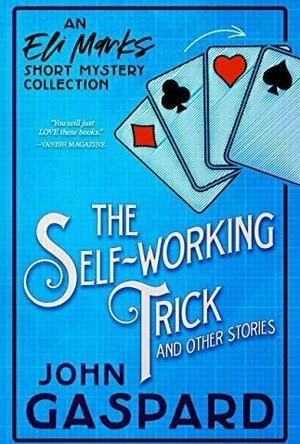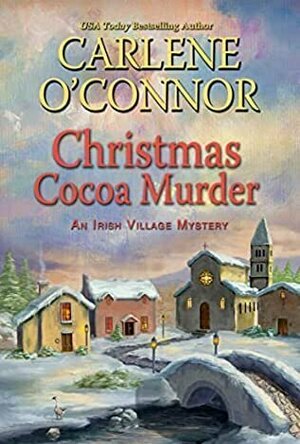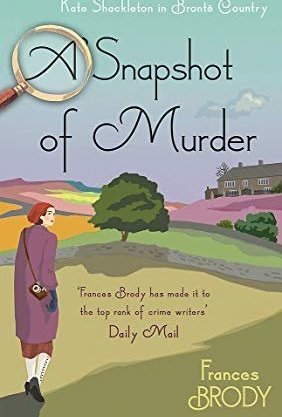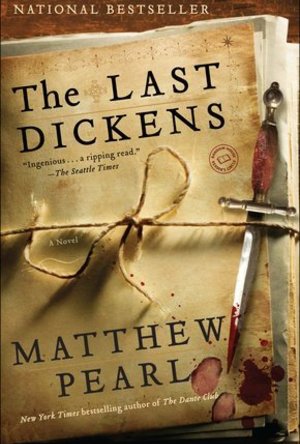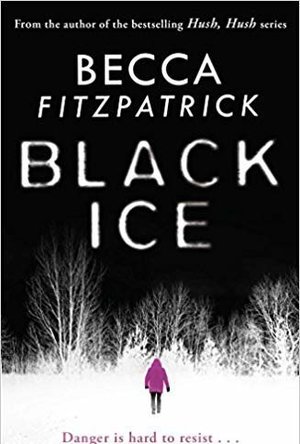Search
Search results
David McK (3692 KP) rated No Free Lunch (Hal Spacejock #4) in Books
Jan 27, 2023
No Free Lunch.
The fourth in Simon Haynes Hal Spacejock series (following A Robot Named Clunk, Second Course and Just Desserts), and the first where Harriet Walsh (from the author's other 'Peace Force' series) cross-overs with Hal.
As I knew that 'going in', I read the first three Hal Spacejock novels before the four Harriet Walsh novels (Peace Force, Alpha Minor, Sierra Bravo and Foxtrot Hotel) before reading this.
Which, unfortunately, proved to be a mistake as I spent a good portion of this novel - well over the first half! - wondering where Harriet's 'sister' Alice or even some of the other characters (with the notable exception of Bernie) had gone, or even why they weren't mentioned at all!
I only found out later that, whilst set beforehand, the Peace Force novels were actually prequels, written later than this one but set before (think like the Star Wars prequels, compared to the original trilogy).
Once I got past that, uhhh, 'disassociation' - once the action primarily moved off the planet of Dismolle to the neighbouring planet Forzen, things did pick up a tad, with Hal and Harriet (and a hint of romance between them) both getting caught up in a murder mystery whilst investigating the disappearance of a wealthy citizen of that planet.
I don't want to give anything away, but I could definitely see elements of the later seasons of Stargate SG-1 here. If you know, you know!
So, yeah, all-in-all, a pleasant enough read but not one that, for me, matched the earlier novels in the series or even the Peace Force novels.
I'll still probably read more of these.
The fourth in Simon Haynes Hal Spacejock series (following A Robot Named Clunk, Second Course and Just Desserts), and the first where Harriet Walsh (from the author's other 'Peace Force' series) cross-overs with Hal.
As I knew that 'going in', I read the first three Hal Spacejock novels before the four Harriet Walsh novels (Peace Force, Alpha Minor, Sierra Bravo and Foxtrot Hotel) before reading this.
Which, unfortunately, proved to be a mistake as I spent a good portion of this novel - well over the first half! - wondering where Harriet's 'sister' Alice or even some of the other characters (with the notable exception of Bernie) had gone, or even why they weren't mentioned at all!
I only found out later that, whilst set beforehand, the Peace Force novels were actually prequels, written later than this one but set before (think like the Star Wars prequels, compared to the original trilogy).
Once I got past that, uhhh, 'disassociation' - once the action primarily moved off the planet of Dismolle to the neighbouring planet Forzen, things did pick up a tad, with Hal and Harriet (and a hint of romance between them) both getting caught up in a murder mystery whilst investigating the disappearance of a wealthy citizen of that planet.
I don't want to give anything away, but I could definitely see elements of the later seasons of Stargate SG-1 here. If you know, you know!
So, yeah, all-in-all, a pleasant enough read but not one that, for me, matched the earlier novels in the series or even the Peace Force novels.
I'll still probably read more of these.
Lindsay (1793 KP) rated The Lady Who Cried Murder (Mac Faraday Mystery #6) in Books
Apr 16, 2022
If you are looking for murder or mystery to enjoy, Lauren Carr will not disappoint. I read almost all of her books. Her books will have you lured in for more than you are expecting. Each book or audiobook can be read as a standalone though you can read them in series. This one is about a girl who wants to be a celebrity but will see get it all and easy money. Will she get it all, or will she pay the price?
There seem to be more secrets and murders than one person can handle. We meet a mother who thinks her daughter has stood abducted. The daughter shows up at a press conference and has set up her mother. Her mother is angry and does some things and changes her will. Whatever happens to her daughter Khole?
David does not want to stand up once more, so he does the interviewer something by checking it out. But do they listen to him when he wants to make sure it is not a setup to make it a circus of the Spenser police department?
Does David find Khole killed and cut up? Who had done it and why? What is Khole's big announcement about what she would tell the interview? We seem to be working with David and Mac and Cameron and Joshua. The team appears to be paired up and works out who the killer is? Guess who gets pulled into these are their girlfriends. You will not guess who is behind all the murders. This one ended up having me guessing until the end. I still did not know who it was up to until the end.
There seem to be more secrets and murders than one person can handle. We meet a mother who thinks her daughter has stood abducted. The daughter shows up at a press conference and has set up her mother. Her mother is angry and does some things and changes her will. Whatever happens to her daughter Khole?
David does not want to stand up once more, so he does the interviewer something by checking it out. But do they listen to him when he wants to make sure it is not a setup to make it a circus of the Spenser police department?
Does David find Khole killed and cut up? Who had done it and why? What is Khole's big announcement about what she would tell the interview? We seem to be working with David and Mac and Cameron and Joshua. The team appears to be paired up and works out who the killer is? Guess who gets pulled into these are their girlfriends. You will not guess who is behind all the murders. This one ended up having me guessing until the end. I still did not know who it was up to until the end.
Mark @ Carstairs Considers (2474 KP) rated The Self-Working Trick (and Other Stories) in Books
Feb 2, 2022
Eli Faces Crime in This Short Story Collection
For the eighth book in the Eli Marks series, author John Gaspard decided to present a short story collection. While two have been previously released, the rest of the twelve stories here are new. Over the course of this collection, Eli must help his ex-wife and her new husband figure out what happened in a bizarre murder/suicide case. Eli finds himself being questioned by the police when someone who gave him a one-star review is found dead. Eli finds himself being sent in by the police to perform magic for a man who refuses to come out of his house. And Eli and his uncle Harry figure out what happened to a man shot in front of a crowd on Halloween night.
While a couple of the stories don’t feature a crime, they still give us a great chance to see Eli in action and let us get some insight into his character. The rest of the stories feature a crime, often with a perfect puzzle that only makes sense when Eli uses his knowledge of the principles of magic to solve it. If you want to be fooled by magic, you’ll be happy to know that these principles are discussed in such a way that the solution to the mystery makes sense, but the specifics of how a trick works aren’t ruined. I love that. Fans will love getting these small glimpses of what else Eli has been up to between the big cases we’ve already read about. If you are new to the character, you’ll find the information you need to follow these cases with nothing from the regular novels spoiled. Most importantly, these stories are fun, with a few laughs along the way as well. This is a completely enjoyable short story collection.
While a couple of the stories don’t feature a crime, they still give us a great chance to see Eli in action and let us get some insight into his character. The rest of the stories feature a crime, often with a perfect puzzle that only makes sense when Eli uses his knowledge of the principles of magic to solve it. If you want to be fooled by magic, you’ll be happy to know that these principles are discussed in such a way that the solution to the mystery makes sense, but the specifics of how a trick works aren’t ruined. I love that. Fans will love getting these small glimpses of what else Eli has been up to between the big cases we’ve already read about. If you are new to the character, you’ll find the information you need to follow these cases with nothing from the regular novels spoiled. Most importantly, these stories are fun, with a few laughs along the way as well. This is a completely enjoyable short story collection.
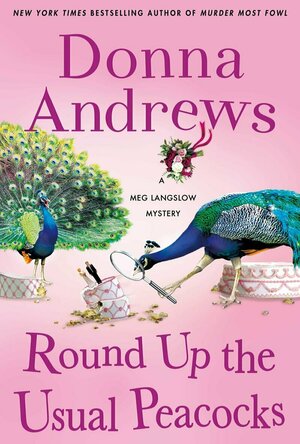
Round Up the Usual Peacocks
Book
New York Times bestselling author Donna Andrews first introduced us to Meg Langslow as a...
Mark @ Carstairs Considers (2474 KP) rated Christmas Cocoa Murder in Books
Nov 8, 2022
Drowning in Hot Chocolate
This story finds Siobhan O’Sullivan, the main character in the popular Irish Village Mysteries, a few weeks from joining the local police department in her small Irish village. Even though she’s not supposed to officially join until after the first of the year, she finds herself getting involved in a case just before Christmas. First, her family’s dog goes missing. Then the intermission entertainment at the holiday panto goes horribly wrong. Paddy O’Shea, the village Santa, has been obsessed over how to top the Santa from the neighboring village, and he’s come up with what he thinks is the perfect way. He’s had a custom-built dunk tank made, and he’s going to challenge people to dunk him in hot chocolate. However, before the show is over, Paddy is found floating face down in the hot chocolate. Who killed Santa?
This was my introduction to the characters, and I did struggle a bit keeping Siobhan’s family straight, and there are some references to things going on in her personal life that I didn’t get. However, these were very minor issues in an overall fun story and easy enough to ignore. As you might have guessed from the description of the story, there is some humor involved in the events, but it does have plenty of serious moments as well. These were balanced perfectly. I really enjoyed getting to know Siobhan and the suspects were all strong enough to be believable as the killer. The plot kept me engaged until we reached the great climax.
NOTE: This story is a novella, roughly 100 pages, and was originally part of the novella collection Christmas Cocoa Murder. If you have that book, there is no need to buy this ebook. If you haven’t read the story, now is the time to sit back and enjoy this Christmas mystery.
This was my introduction to the characters, and I did struggle a bit keeping Siobhan’s family straight, and there are some references to things going on in her personal life that I didn’t get. However, these were very minor issues in an overall fun story and easy enough to ignore. As you might have guessed from the description of the story, there is some humor involved in the events, but it does have plenty of serious moments as well. These were balanced perfectly. I really enjoyed getting to know Siobhan and the suspects were all strong enough to be believable as the killer. The plot kept me engaged until we reached the great climax.
NOTE: This story is a novella, roughly 100 pages, and was originally part of the novella collection Christmas Cocoa Murder. If you have that book, there is no need to buy this ebook. If you haven’t read the story, now is the time to sit back and enjoy this Christmas mystery.
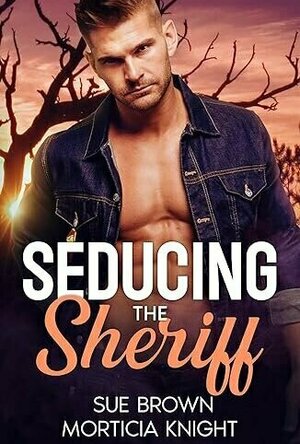
Seducing the Sheriff (Charming Butte #2)
Book
A shy builder and a rugged sheriff. Can two serial introverts make the terrifying leap from...
Contemporary MM Romance

The Whisper Legacy (Pappa Legacy #1)
Book
Curran’s enemies thought he was dead. They were wrong. He thought his past was left on the Voula...
Political Thriller Action Detective Mystery
Debbie (52 KP) rated A Snapshot Of Murder in Books
Feb 27, 2019
A Snapshot of Murder
By: Frances Brody
Crooked Lane Books
Mystery and Thrillers
Publish Date 19 April 2019
Pages 448
#ASnapshotOfMurder #NetGalley
<img src="https://www.netgalley.com/badge/23cda8f5b390052c84bafb486921760c8733c9f5"; width="80" height="80" alt="10 Book Reviews" title="10 Book Reviews"/>
<img src="https://www.netgalley.com/badge/9a41056d7201c045d3f9e5c161f9569494687ae1"; width="80" height="80" alt="Professional Reader" title="Professional Reader"/>
This book is set in the year 1928 in London. The time is in April.
Characters are Harriet the niece of Kate Shackleton. She has been living there for about 7 months.
Kate Shackleton is a private investigator of sorts. Her husband Gerald is no longer around since the war.
Carine Murchison is a photographer friend.
Tobias Murchison is Carine Husband. He isn't well liked.
Edward Chester Carine's old flame
Carine's father
Derek another Photographer
Rita a friend of Carine's
This story is mostly about Carine and her family. When she was five her mother was going away but promised to come back and get her. Her mom never came back. She has had dreams off and on about a spot in the cellar in the studio that belongs in the family. Carine takes pictures just like her mother and Grandmother. Carine stopped going to school at the age of 13 because her Dad needed her to take pictures to make a living. Carine never did know her Grandma but is named after her. The Studio is name Carine Photo Studio. Her father is a drunk. Carine falls in love with a Poet named Edward Chester. Her father doesn't like and does everything in his power to stop this relationship which he does. Edward goes off to war and is killed. After the war she meets Tobias who happened to a friend of Edwards and tells her of his death. Carine's father likes Tobias and helps him to marry Carine.
As the story goes on Edward returns from the died but is disfigured from the war. The books tells why Carine thought was dead.
As the time has now changed to summer they go to an old farmhouse to see the parish hand over and old church for a museum for the Bronte Sisters. During this trip Tobias ends up dead. Who killed him or did he kill himself. Why him and someone else.
There were a lot of characters and each of them had a reason but who did it and why. I did enjoy this book and recommend that you read it. There are some interesting turns. Since this is a thriller/ mystery it is hard to go into details because I don't want to spoil it for you.
By: Frances Brody
Crooked Lane Books
Mystery and Thrillers
Publish Date 19 April 2019
Pages 448
#ASnapshotOfMurder #NetGalley
<img src="https://www.netgalley.com/badge/23cda8f5b390052c84bafb486921760c8733c9f5"; width="80" height="80" alt="10 Book Reviews" title="10 Book Reviews"/>
<img src="https://www.netgalley.com/badge/9a41056d7201c045d3f9e5c161f9569494687ae1"; width="80" height="80" alt="Professional Reader" title="Professional Reader"/>
This book is set in the year 1928 in London. The time is in April.
Characters are Harriet the niece of Kate Shackleton. She has been living there for about 7 months.
Kate Shackleton is a private investigator of sorts. Her husband Gerald is no longer around since the war.
Carine Murchison is a photographer friend.
Tobias Murchison is Carine Husband. He isn't well liked.
Edward Chester Carine's old flame
Carine's father
Derek another Photographer
Rita a friend of Carine's
This story is mostly about Carine and her family. When she was five her mother was going away but promised to come back and get her. Her mom never came back. She has had dreams off and on about a spot in the cellar in the studio that belongs in the family. Carine takes pictures just like her mother and Grandmother. Carine stopped going to school at the age of 13 because her Dad needed her to take pictures to make a living. Carine never did know her Grandma but is named after her. The Studio is name Carine Photo Studio. Her father is a drunk. Carine falls in love with a Poet named Edward Chester. Her father doesn't like and does everything in his power to stop this relationship which he does. Edward goes off to war and is killed. After the war she meets Tobias who happened to a friend of Edwards and tells her of his death. Carine's father likes Tobias and helps him to marry Carine.
As the story goes on Edward returns from the died but is disfigured from the war. The books tells why Carine thought was dead.
As the time has now changed to summer they go to an old farmhouse to see the parish hand over and old church for a museum for the Bronte Sisters. During this trip Tobias ends up dead. Who killed him or did he kill himself. Why him and someone else.
There were a lot of characters and each of them had a reason but who did it and why. I did enjoy this book and recommend that you read it. There are some interesting turns. Since this is a thriller/ mystery it is hard to go into details because I don't want to spoil it for you.
Phil Leader (619 KP) rated The Last Dickens in Books
Nov 18, 2019
I will hold my hand up to two things at the start of this review. Firstly I am drawn to fiction based on other fiction, and secondly I'm not a big Dickens fan. For various reasons I just don't find him an interesting read.
However I can't deny his impact as a novelist at a time when reading as a past time was only just reaching the masses. And so this book looked intriguing.
Primarily set immediately after the death of the famous author, having completed exactly half of the installments of his latest book - The Mystery of Edwin Drood - James Osgood, the junior partner in his American publishers is sent to England to try to track down any other parts of the manuscript.
However dark forces are afoot; there are two murders related to the Dickens papers in short order and Osgood is attacked on the ship to England. Clearly someone does not want any more of Drood to be published.
Pearl has taken one of the greatest literary mysteries of all (there really are no clues about how Drood was supposed to conclude) and wrapped it in another fictional conundrum. He has clearly researched all of the details very well and uses real people - including Osgood and Dickens himself- along with fictional characters to tell the story. This gives the plot a certain solidity because so much of it is based in reality, with the fabricated parts showing through the cracks.
The narrative moves between 1870 and Osgood's quest, to India at the same time where Frank Dickens (son of Charles) is investigating drug smuggling and to 1868 when Dickens is performing a reading tour of America.
The plot is more-or-less highly plausible, just some coincidental points that require a little suspension of disbelief. The writing is excellent throughout, highly descriptive and particularly good at capturing the personalities of the characters (as would be expected given how carefully this has been researched). There are several action scenes at the book progresses and these are handled well. The villains are unmasked in classical style, gloating with our heroes apparently doomed only for the tables to be turned.
Honestly I was expecting this to be reasonably interesting, highlighting aspects of Dickens' life and death with a little light murder mystery thrown in. In the end I would call this nothing less than a triumph and will definitely be looking to read more of Pearl's work.
It's still not tempted me to read any Dickens, though...
However I can't deny his impact as a novelist at a time when reading as a past time was only just reaching the masses. And so this book looked intriguing.
Primarily set immediately after the death of the famous author, having completed exactly half of the installments of his latest book - The Mystery of Edwin Drood - James Osgood, the junior partner in his American publishers is sent to England to try to track down any other parts of the manuscript.
However dark forces are afoot; there are two murders related to the Dickens papers in short order and Osgood is attacked on the ship to England. Clearly someone does not want any more of Drood to be published.
Pearl has taken one of the greatest literary mysteries of all (there really are no clues about how Drood was supposed to conclude) and wrapped it in another fictional conundrum. He has clearly researched all of the details very well and uses real people - including Osgood and Dickens himself- along with fictional characters to tell the story. This gives the plot a certain solidity because so much of it is based in reality, with the fabricated parts showing through the cracks.
The narrative moves between 1870 and Osgood's quest, to India at the same time where Frank Dickens (son of Charles) is investigating drug smuggling and to 1868 when Dickens is performing a reading tour of America.
The plot is more-or-less highly plausible, just some coincidental points that require a little suspension of disbelief. The writing is excellent throughout, highly descriptive and particularly good at capturing the personalities of the characters (as would be expected given how carefully this has been researched). There are several action scenes at the book progresses and these are handled well. The villains are unmasked in classical style, gloating with our heroes apparently doomed only for the tables to be turned.
Honestly I was expecting this to be reasonably interesting, highlighting aspects of Dickens' life and death with a little light murder mystery thrown in. In the end I would call this nothing less than a triumph and will definitely be looking to read more of Pearl's work.
It's still not tempted me to read any Dickens, though...
<i>This ARC was provided by the publisher via NetGalley in exchange for an honest review</i>
The author of the <i>Hush, Hush</i> saga, Becca Fitzpatrick, steps away from the paranormal genre with this brand new contemporary thriller, <i>Black Ice</i>. Britt Pfeiffer has persuaded her best friend, Korbie, to go on an adventurous backpacking trip in the Tenton mountains for their senior spring break. It immediately gets off to a bad start when the girls get caught in a freak snowstorm and stranded a long way from their lodge. Luckily they come across a cabin owned by a guy named Shaun who is there with his friend Mason. But it may not be the safe haven they hoped it to be. With her best friend’s life in danger as well as her own, Britt has to remain strong in order to save themselves; either that or hope that her ex-boyfriend will realize they are missing and rescue them.
Initially it was difficult to connect with Britt who narrates the entire story. She, as well as Korbie, is a rather annoying, spoilt daddy’s girl and equally annoying to read about. This did not set the novel up well as it appeared it was going to be about two whining teenagers, both used to getting their own ways, fending for themselves in the mountains. Once the girls were faced with a life or death situation, Britt’s character developed rapidly. She became more independent, clever and likable, which made the story a lot easier to read and enjoy.
<i>Black Ice</i> is a thriller containing a murder mystery, which links all the characters together but in ways that you would not originally expect. It is also a romance novel. Although Mason is perceived as a bad guy, Britt ends up falling for him, and he her, sparking a risky relationship.
Despite the shaky start, Fitzpatrick’s latest novel is full of exciting twists and turns. There is the high risk of death, either from murder or exposure to the elements. Also, with a breathtaking conclusion, it is exhilarating to try and work out who is good, who is bad and who has been murdering girls in the mountains.
Fans of Fitzpatrick’s previous works may be disappointed with the lack of the paranormal and fantasy creatures that she has become known for, however this is still an enjoyable book. Personally I preferred it to <i>Hush, Hush</i> which I admittedly did not care for. I confess that I did not expect to like this book, especially as the main character began as a very irritating person, but it does get so much better.
The author of the <i>Hush, Hush</i> saga, Becca Fitzpatrick, steps away from the paranormal genre with this brand new contemporary thriller, <i>Black Ice</i>. Britt Pfeiffer has persuaded her best friend, Korbie, to go on an adventurous backpacking trip in the Tenton mountains for their senior spring break. It immediately gets off to a bad start when the girls get caught in a freak snowstorm and stranded a long way from their lodge. Luckily they come across a cabin owned by a guy named Shaun who is there with his friend Mason. But it may not be the safe haven they hoped it to be. With her best friend’s life in danger as well as her own, Britt has to remain strong in order to save themselves; either that or hope that her ex-boyfriend will realize they are missing and rescue them.
Initially it was difficult to connect with Britt who narrates the entire story. She, as well as Korbie, is a rather annoying, spoilt daddy’s girl and equally annoying to read about. This did not set the novel up well as it appeared it was going to be about two whining teenagers, both used to getting their own ways, fending for themselves in the mountains. Once the girls were faced with a life or death situation, Britt’s character developed rapidly. She became more independent, clever and likable, which made the story a lot easier to read and enjoy.
<i>Black Ice</i> is a thriller containing a murder mystery, which links all the characters together but in ways that you would not originally expect. It is also a romance novel. Although Mason is perceived as a bad guy, Britt ends up falling for him, and he her, sparking a risky relationship.
Despite the shaky start, Fitzpatrick’s latest novel is full of exciting twists and turns. There is the high risk of death, either from murder or exposure to the elements. Also, with a breathtaking conclusion, it is exhilarating to try and work out who is good, who is bad and who has been murdering girls in the mountains.
Fans of Fitzpatrick’s previous works may be disappointed with the lack of the paranormal and fantasy creatures that she has become known for, however this is still an enjoyable book. Personally I preferred it to <i>Hush, Hush</i> which I admittedly did not care for. I confess that I did not expect to like this book, especially as the main character began as a very irritating person, but it does get so much better.
